Tax Update Classes

Every year it seems like Congress waits until the last minute to make changes to the tax code. Lately, many of the changes are retroactive, as changes are made in December that affect the current tax year, only to expire a few days later, on December 31. This environment of uncertainly and change makes it challenging for tax professionals to stay up-to-date on current law and increases the importance of taking a tax update class in January. There are many vendors offering tax update classes in a variety of ways and we will review some of them here.
A few of the things to consider when looking for the right tax update class are topics covered, length of class, cost, presenter and delivery system. Some tax professionals only need a 1040 update while others need updates on a wider variety of forms. Some folks like to travel for their education while others prefer to learn in the comfort of their office. Some people like individual instruction while others prefer a classroom environment. Fortunately, with today’s technology there is a course for everyone.
For traditional learners who prefer in-person, classroom education, the National Center for Professional Education (NCPE) is a great place to start. Their final Individual Income Tax Workshop will be offered on January 6 in Atlantic City, NJ. The class is 16 hours and comes with a well-written and thorough reference book for $375. Details are available at www.NCPEseminars.com.
The National Society of Accountants (NSA) also offers a number of in-person tax updates around the country in January. Since these classes are offered by their state associations, they vary in curriculum, price and location. Details are available at www.nsacct.org.
For those who prefer to learn in the comfort of their own offices, or just don’t have time to travel in January, on-line education is a great option. Webinars, the most popular form of on-line education, are generally offered in two formats for CPE purposes: group internet and self-study, more commonly known as live and on-demand. What’s the difference between the two? According to IRS Continuing Education Provider Standards:
“Online group internet programs must ensure attendance during the entire program (e.g. utilizes polling questions throughout the program or a system that provides attendance reports such as an IRS webinar) and are generally, but not always, live programs. Self-study, including archived or taped programs, requires a means for evaluating successful completion of a program (an examination).”
In other words, to receive credit, a student must either participate in a live broadcast or take a test at the end of class to demonstrate participation in and/or understanding of, the material presented.
Tax update webinars are available from a variety of sources including Drake Software. The Drake Tax Update 2015 is offered live on January 7, 12 & 15 and can be accessed through the Drake e-Training Center (www.Drakeetc.com). The class is two hours and is priced at an economical $29 for current Drake customers and $39 for non-Drake customers.
The National Association of Tax Professionals (NATP) and the American Institute of Certified Public Accountants (AICPA) also offer live tax update webinars. NATP’s ‘Are You Ready for Tax Season?’ is a two-hour class airing January 7, 2016. Cost is $54 for members and $66 for non-members and the course can be accessed through www.natptax.org. AICPA’s live webcast entitled ‘Annual Tax Update: Individuals and Sole Proprietors’ is an 8-hour class airing January 22 and February 23 from 9:00 am – 5:00 pm. Regular cost is $345 and members can purchase it for $249 and it can be accessed through www.AICPA.org.
The National Association of Enrolled Agents (NAEA) takes on-line education a step further with their Winter Webinar Series. This package includes two different tax update webinars available in both the live and on-demand formats.
The first class, ‘2015 Tax Update’ is a 4-hour class offered live on January 7 at cost of $104 for NAEA members and $144 for non-members. The second class, ‘Late Breaking 2015 Tax News’, is a 2-hour class offered live on January 21 at a cost of $52 for members and $72 for non-members. Both classes are available on-demand after the live broadcast so if scheduling is an issue, this could be the best option. To learn more and to register, visit www.naea.org.
Finally, not all on-line education is presented in webinar format. For those who prefer learning in a self-study environment, check out Top Tax Training, “The fastest, easiest and most friendly way to earn continuing education credits for tax professionals.” TTT offers a 3-CPE tax update class for $45 or as part of a 15-hour bundle for $99. There’s not a more affordable way to get your CPE for the year. Visit www.TopTaxTraining.com to see for yourself.
As you can see there many tax update classes to choose from for tax professionals seeking to stay up-to-date and earn continuing education credits before e-filing opens on January 19. Whether you need two hours, 16 hours, or something in-between; whether you need just a 1040 update or something more comprehensive; whether you prefer to learn live, on-demand or at your own pace there is a class for you. There’s even a Late Breaking 2015 Tax News class for those who aren’t sure they got everything the first time. So how do you like your tax updates? Feel free to share your thoughts in the box below. Meanwhile, Merry Tax Update and Happy Tax Season to you and your firm.
ABOUT THE AUTHOR:
Jerry Gaddis, EA is the Founder and CEO of Tropical Tax Solutions, a full-service tax firm located in the Florida Keys. He earned a BS Degree from the University of Florida and an MBA from the Crummer Graduate School of Business at Rollins College in Winter Park, FL. He currently serves on the Board of Directors for the National Association of Enrolled Agents and you can interact with him on LinkedIn and Twitter (@TropicalTax).



